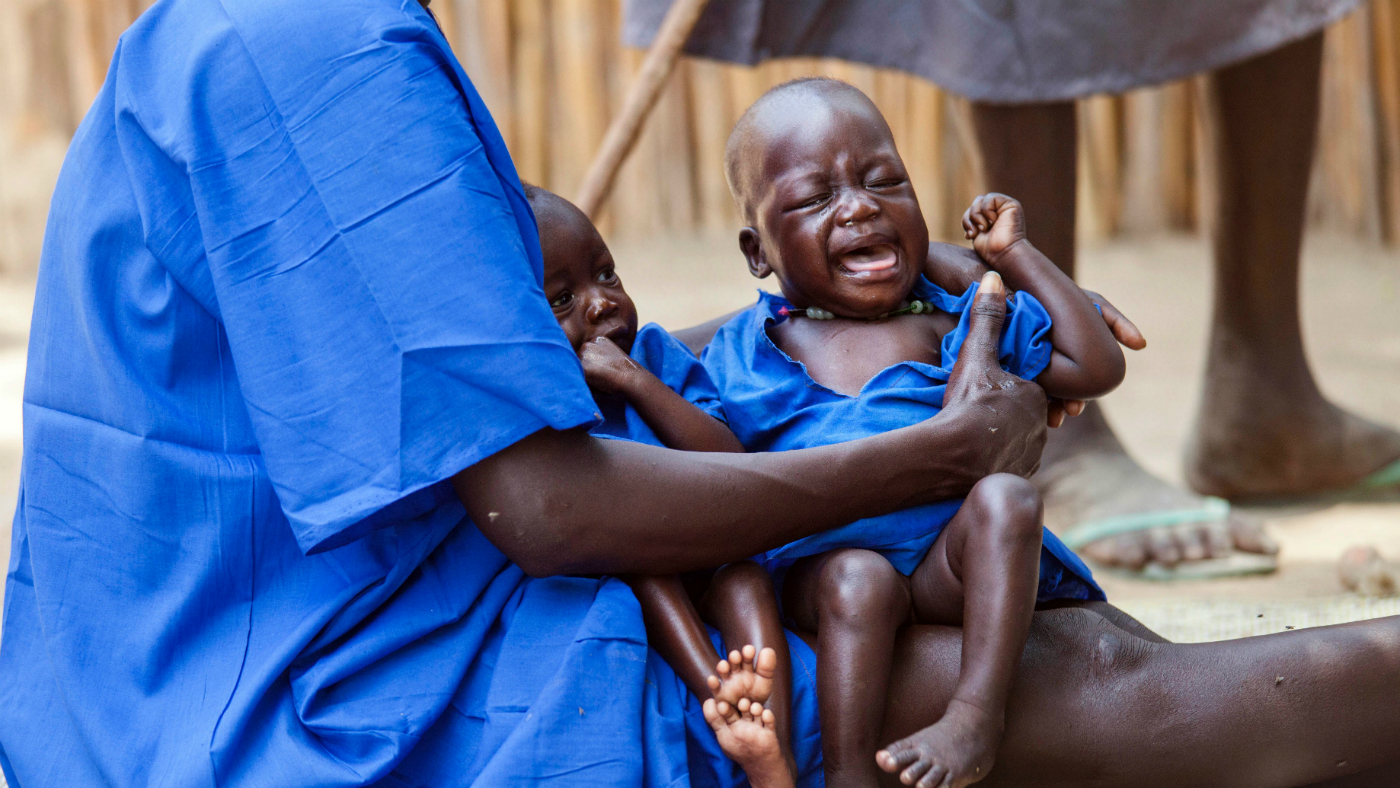East Africa hunger crisis: Mo Farah backs UK charity appeal
Olympian tells Britons to 'act now' and help millions facing starvation

A free daily email with the biggest news stories of the day – and the best features from TheWeek.com
You are now subscribed
Your newsletter sign-up was successful
Sir Mo Farah is fronting a new charity fundraising appeal for millions of people facing hunger in East Africa.
The Somali-born Olympian is urging his fellow Britons to "act now" by donating to the East Africa Food Crisis Appeal, launched yesterday by 13 UK aid agencies working together as the Disasters Emergency Committee.
The committee says that at least 16 million people in Somalia, Kenya, Ethiopia and South Sudan urgently need food, water and medical treatment.
The Week
Escape your echo chamber. Get the facts behind the news, plus analysis from multiple perspectives.

Sign up for The Week's Free Newsletters
From our morning news briefing to a weekly Good News Newsletter, get the best of The Week delivered directly to your inbox.
From our morning news briefing to a weekly Good News Newsletter, get the best of The Week delivered directly to your inbox.
Father-of-four Farah says it "hurts" to see the plight of parents whose children are facing starvation.
"I was born in Somalia and it breaks my heart to hear stories of how families are suffering," says Farah, who's an ambassador for Save the Children.
The UK government will match pound for pound the first £5million donated by the public.
Which countries are affected?
A free daily email with the biggest news stories of the day – and the best features from TheWeek.com
A famine was declared in South Sudan last month, becoming the first UN-recognised famine in six years. Around 100,000 people in the war-torn country are already starving, but another 5.5 million – 40 per cent of the population – are in danger of joining them.
The alarm has also been raised in Somalia, Kenya and Ethiopia which have been hit by a severe drought.
Somalia's Prime Minister, Hassan Ali Haire, told the BBC that more than 100 people died from dehydration or hunger within 48 hours in one particularly hard-hit region.
The UN's humanitarian chief, Stephen O'Brien, has warned that "without collective and coordinated global efforts, people will simply starve to death".
What has caused the food crisis?
In South Sudan, the famine is the result of man-made rather than natural factors.
Since 2013 the world's newest country has been riven by bloody civil war between its various ethnic groups.
The violence has brought food production and distribution to a standstill as farmers flee their homes and transport networks are destroyed.
"Villages are deserted," Nellie Kingston, an aid coordinator at Concern Worldwide, told NPR. "People are hiding in swamps to avoid the fighting."
Meanwhile the drought in South Sudan's neighbouring countries Somalia, Ethiopia and Kenya has affected crop growth, livestock and access to drinking water.
Temperatures are rising in the Horn of Africa and weather patterns are increasingly unpredictable. Many blame this on global warming.
The Financial Times says that a "lack of effective government" and an insurgency by jihadi militia al-Shabaab "have not helped".
To make a donation visit Dec.org.uk.
-
 The ‘ravenous’ demand for Cornish minerals
The ‘ravenous’ demand for Cornish mineralsUnder the Radar Growing need for critical minerals to power tech has intensified ‘appetite’ for lithium, which could be a ‘huge boon’ for local economy
-
 Why are election experts taking Trump’s midterm threats seriously?
Why are election experts taking Trump’s midterm threats seriously?IN THE SPOTLIGHT As the president muses about polling place deployments and a centralized electoral system aimed at one-party control, lawmakers are taking this administration at its word
-
 ‘Restaurateurs have become millionaires’
‘Restaurateurs have become millionaires’Instant Opinion Opinion, comment and editorials of the day
-
 Epstein files topple law CEO, roil UK government
Epstein files topple law CEO, roil UK governmentSpeed Read Peter Mandelson, Britain’s former ambassador to the US, is caught up in the scandal
-
 Iran and US prepare to meet after skirmishes
Iran and US prepare to meet after skirmishesSpeed Read The incident comes amid heightened tensions in the Middle East
-
 Israel retrieves final hostage’s body from Gaza
Israel retrieves final hostage’s body from GazaSpeed Read The 24-year-old police officer was killed during the initial Hamas attack
-
 China’s Xi targets top general in growing purge
China’s Xi targets top general in growing purgeSpeed Read Zhang Youxia is being investigated over ‘grave violations’ of the law
-
 Panama and Canada are negotiating over a crucial copper mine
Panama and Canada are negotiating over a crucial copper mineIn the Spotlight Panama is set to make a final decision on the mine this summer
-
 Why Greenland’s natural resources are nearly impossible to mine
Why Greenland’s natural resources are nearly impossible to mineThe Explainer The country’s natural landscape makes the task extremely difficult
-
 Iran cuts internet as protests escalate
Iran cuts internet as protests escalateSpeed Reada Government buildings across the country have been set on fire
-
 US nabs ‘shadow’ tanker claimed by Russia
US nabs ‘shadow’ tanker claimed by RussiaSpeed Read The ship was one of two vessels seized by the US military